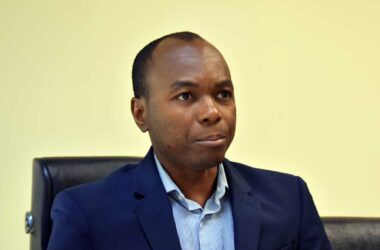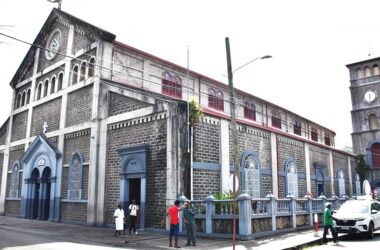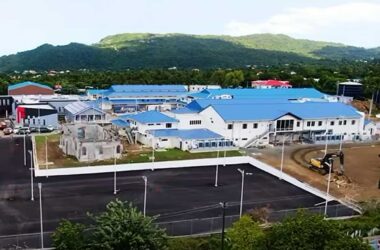
We never thought we’d get to a stage where we wake-up every morning expecting to hear someone was killed while we slept, but that time has long come, the only uncertainty being where and when.
We need not repeat the daily and nightly narrative of the local mainstream and social media that go over each other to present the same versions of the same story (of who was killed and the number dead in total) on different platforms.
Anyone following the news of the world will know that crime is worse everywhere today, expressed in same and different ways, as proliferation of illegal weapons is as much a Caribbean as a global problem that’s also attracting increasing attention by international agencies fighting crime and corruption.
At the regional level, crime is just as bad in neighbouring Martinique, where French gendarmes are having as tough a time as Saint Lucian cops; and bad too in Colombia, where gang warfare is another worrying and continuing national problem.
Earlier this week (December 13), for the third time since 2018, Jamaica declared a new state of emergency following a streak of violence affecting the entire country, including tourist zones.
The emergency has been declared in nine of out of 14 parishes — or 64.29% of the country — including Saint James, which encompasses Montego Bay, a major tourist destination.
The other administrative regions affected are Kingston, Clarendon, Saint Catherine, Westmoreland, Hanover, Saint Ann and Saint James.
And early Thursday morning (December 15) an intruder attacked guards at Guyana’s State House, official residence of the President of the Republic, stabbing one with a knife and taking a gun from another before being subdued, leading to a heightened state of national security at a time when there are clear signs the upcoming Local Government Elections might not be as peaceful as most Guyanese would wish.
The analysts will point to a dozen, a hundred or a thousand reasons and opposition politicians will naturally go heads-over-heels to blame the government and offer solutions that are either reactive or redundant, or both.
Today in Saint Lucia (like everywhere else), more deaths are affecting more people and there’s an understandably high level of concern about what the government and the police are doing, whether the courts or lawyers and magistrates are effective enough, why the increased mobility of the police in the past year hasn’t resulted in a similar increase in crime-busting results, whether jail sentences are tough enough – and the usual reappearance of the loud calls to ‘bring back hanging…”
Not much is said about the increasing sophistication of how illegal arms enter the island, whether through air or seaports, in boats or barrels; or the fact that it wouldn’t be as bad but for the collaboration of inside sources at ports of entry and corrupt law officers.
Saint Lucians at home and abroad are sick and tired of being sick and tired about the worsening state of crime on the island, some composing and sharing online daily songs and prayers, others simply complaining and most simply crying out loud but offering no solutions – except “Leave the criminals to God…”
I have been asked (more than once and by well-meaning fellow citizens: “What’s the government is doing to stop the crime wave?”
And many have also told me Prime Minister Pierre’s long list of stated actions either “isn’t enough” or “will not work…”
I was also told (again by a well-meaning citizen with above-average sense): “The government needs to act now because this crime situation has got to Rodney Bay and Cap Estate…” – as if crime in Marchand or Faux-a-Chaux, Jacmel, Dennery and Vieux Fort don’t matter as much.
And recently, when two persons were killed in Soufriere, some in the local media were more bent on reporting what was reported about the killings in the UK press, than anything else.
But then, like I’ve said, I have developed an unnatural immunity from news about deaths, murders, homicides and other forms of killing, whenever and wherever, as I react differently, instead thinking about how to explain why our entire crime-fighting strategy must change.
First of all, we need to find ways and means to get people to understand that, like poverty and sickness, it’s impossible to eradicate crime; it can be fought and reduced, but it simply can’t be stopped – which has never happened anywhere.
I mean, just imagine a society without crime and ask yourself what would be the use of the police force, lawyers and courts, prisons and prison officers.
We’d all like that, but can we stretch our usually fertile imaginations wide enough to even think of it?
In that sense, any political party or leader who promises on a campaign trail to “end” crime and/or corruption should be rejected on Election Day – and every day thereafter – as, like Crime, Corruption is also a function and product of one’s mind — one called Greed — which also cannot be read in advance, by anyone.
But we also have to understand that while we must be naturally concerned about the crime rate, we cannot — and should not — expect any government to publish and broadcast its crime strategy in the ways we expect to hear and see.
It just would not make sense for any Prime Minister to come out and say exactly what Government and The Police will be doing to take the crime fight to the next stage; or how, where and when it will battle the criminals, with or without guns, or public support.
Of course, the government of the day must find the words to tell people that will allow them to have confidence it’s not sleeping on the job while lives are being taken in the prime of time.
But to ask The Government and The Police to say exactly what they plan to do?
Awah!
It just doesn’t make sense…













